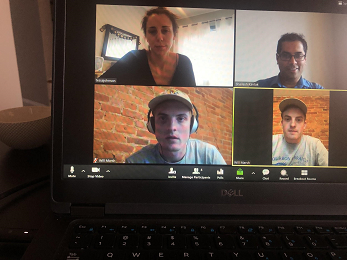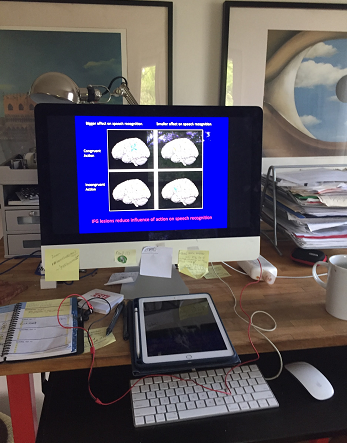
The impact of the COVID-19 pandemic has been felt here in Philadelphia, as elsewhere across the globe, and the devastating personal, social, and economic effects are only beginning to be fully understood.
The ability to adapt to change, a hallmark feature of leading organizations, has been strikingly apparent here at Moss Rehabilitation Research Institute. During March, our compassionate staff moved quickly in the interest of safety for each other and for research participants, to suspend in-person research visits, and adapt to working from home. Amongst the abrupt and substantial changes to work-life normality, MRRI pivoted to important activities that could be completed remotely, such as analyzing data, manuscript and grant preparation, and planning, and remote patient interactions where possible. The teamwork across the Institute has been outstanding over this time, maintaining our pace of research in translational neuroscience and rehabilitation, with new findings, publications, and virtual presence at scientific symposia.
In parallel to optimizing remote working productivity, we have commenced planning for return to work, when we can responsibly do so, with vigilance and adherence to emerging guidelines. We enthusiastically await return to our first-rate laboratories and facilities, albeit with anticipated de-densified arrangements and procedures.
The work of our colleagues within MossRehab, and Einstein Healthcare Network, and their tremendous achievements during this pandemic, are to be applauded.
I am particularly grateful to MRRI staff and the broader MRRI community, including collaborators and research participants, for remaining as engaged as possible, and being sensitive to the personal circumstance of each of us, whilst being pro-active. I am sanguine about the efficiencies and new ideas that will emerge out of this difficult time to strengthen the Institute.
Sincerely,

Dylan J. Edwards
Director, Moss Rehabilitation Research Institute








